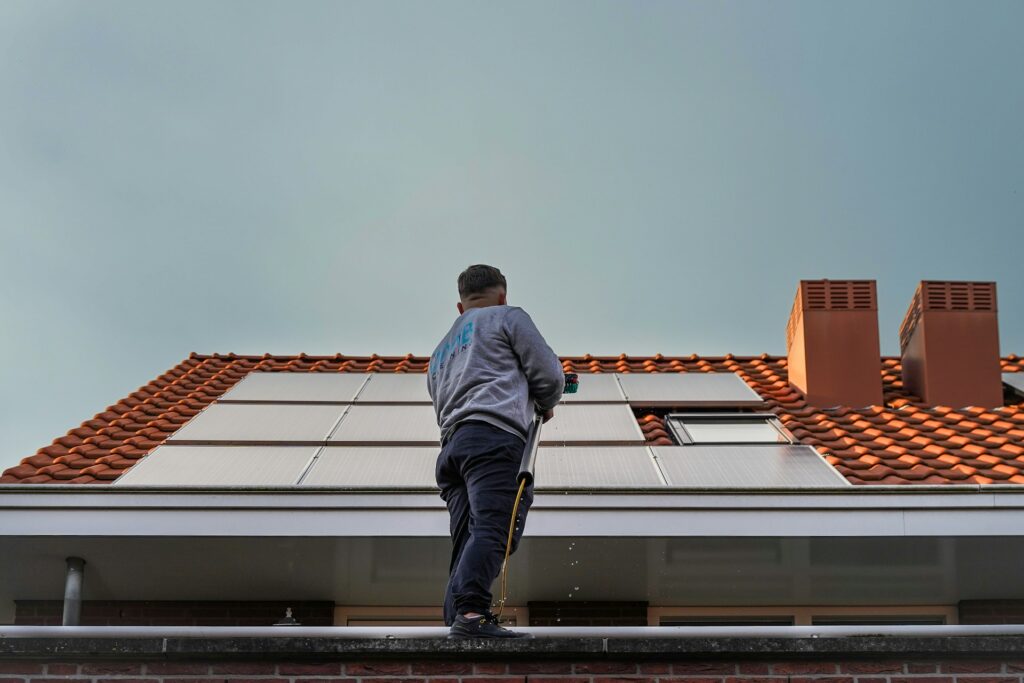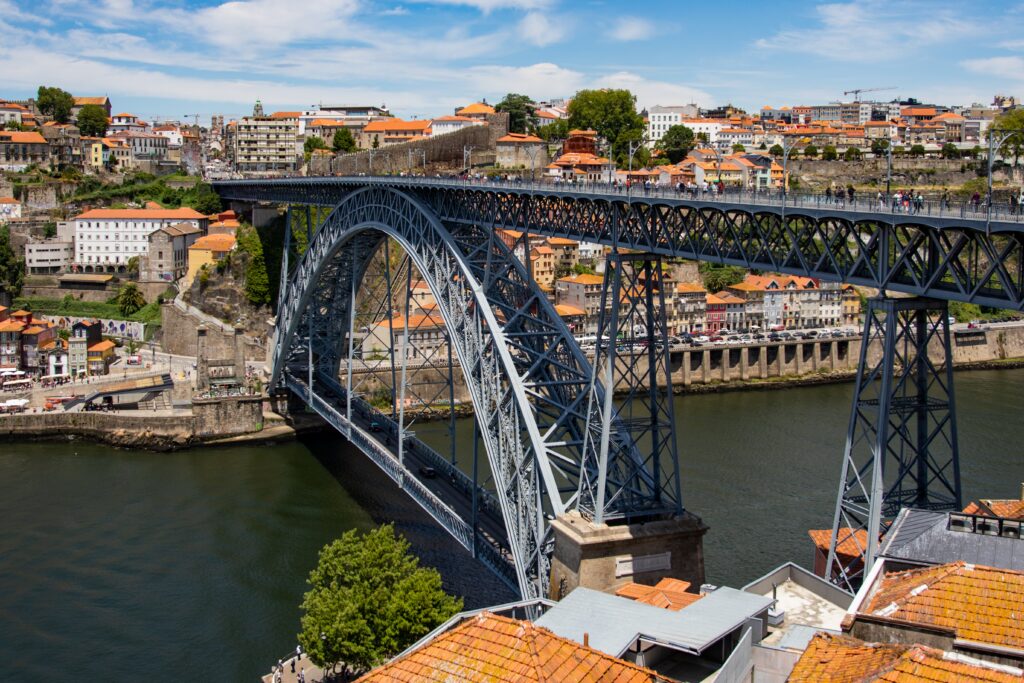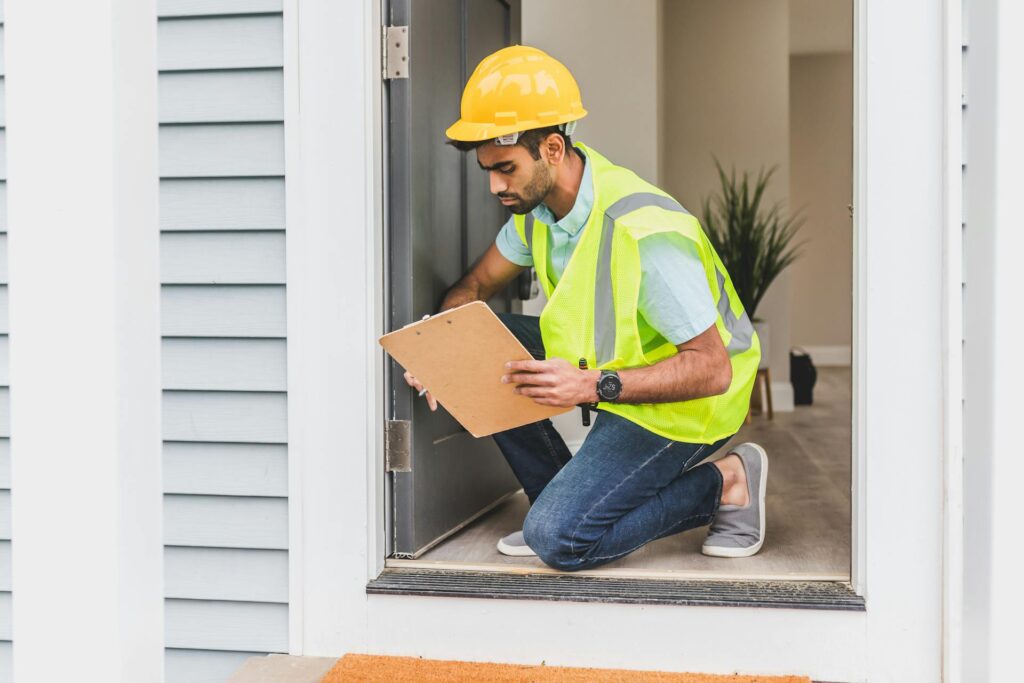The BRRR strategy—Buy, Rehab, Rent, Refinance, Repeat—has gained traction among real estate investors for its ability to build long-term wealth using a single property multiple times. While it’s a well-known model in markets like the U.S., many investors are now looking at countries like Portugal to apply this method.
With its growing demand for rental housing, attractive property prices in certain regions, and favorable financing conditions, Portugal presents a compelling case for the BRRR approach. In this article, we’ll explore how to adapt the BRRR strategy to the Portuguese market, what challenges to watch for, and where the best opportunities might lie.
What is the BRRRR strategy?
The BRRRR strategy—Buy, Rehab, Rent, Refinance, Repeat—is a real estate investment method that helps investors grow their portfolios using the same capital multiple times. It starts with buying a property below market value, usually one that needs work.
After renovating (rehabbing) the property to improve its condition and increase its value, the next step is to rent it out to generate steady income.
Once the property is stabilized with tenants and producing income, the investor refinances it—ideally based on its new, higher value—to pull out their initial investment. This frees up capital to buy the next property and repeat the cycle.
The BRRRR method can be a powerful way to scale a real estate portfolio, but it requires careful planning, access to financing, and an understanding of the local market.

How does the BRRRR strategy work
The BRRRR method is similar to property flipping, but instead of selling after renovations, you rent the property out to benefit from long-term cash flow and property appreciation. In Portugal, where certain markets offer strong rental demand and value-add opportunities, this strategy can be particularly effective.
1. Buy
In the Portuguese market, the first step is finding the right property—often a fixer-upper, a property in need of modernisation, or even a bank-owned or distressed asset. Areas outside the main tourist zones, or up-and-coming districts in cities like Lisbon, Porto, or regional hubs, can offer good potential. The key is to spot a property where improvements will significantly increase both value and rental appeal—ideally located near amenities, transport, or areas with housing shortages.
2. Rehab
Next, renovate the property to boost its market value and rental potential. In Portugal, this could mean anything from updating an outdated apartment to a full refurbishment of an older building. It’s essential to understand local construction regulations, hire reliable contractors, and focus on cost-effective improvements that offer the best return—like modern kitchens, energy-efficient systems, or maximizing usable space.
3. Rent
Once the property is ready, rent it out—either long-term to locals or mid/short-term to expats, students, or digital nomads (depending on location and licensing). Portugal has a healthy rental market, particularly in urban areas and coastal towns. Make sure the rental income covers your mortgage and operating costs, with some room for profit. Managing tenant relationships and property upkeep is key for long-term success.
4. Refinance
After the property is rented and generating income, the next step is to refinance. In Portugal, this means working with a local bank to leverage the increased value of your renovated property. Not all banks offer the same terms, especially for foreigners, so it’s important to shop around or work with a mortgage broker. A successful refinance can free up your original investment, allowing you to move on to your next project.
5. Repeat
With your capital back in hand, you’re ready to repeat the process. As you build experience and refine your approach, each cycle gets easier and potentially more profitable. Whether you’re targeting steady cash flow, capital gains, or a mix of both, BRRRR in Portugal can be a powerful way to scale your real estate portfolio over time.

Why BRRRR investment in Portugal?
The BRRRR strategy works best when three key elements align: access to undervalued properties, strong rental demand, and viable refinancing options. Portugal ticks all the boxes:
- Increasing demand for student housing, long-term rentals, and short-term stays in key urban and coastal areas.
- Competitive property prices compared to many Western European countries, offering solid value for investors.
- A maturing and more flexible banking sector that’s becoming increasingly open to refinancing rental properties, even for foreign investors.
portugal Real Estate Investment Opportunities
Coimbra: Student Housing Hub
- Coimbra is home to over 20,000 university students, with a persistent shortage of affordable rental options.
- Properties close to the university—particularly in Celas and São Martinho do Bispo—often see 20–30% value appreciation after renovation.
- Offers stable cash flow, with average rents ranging from €300–€450 per room.
Setúbal: Distressed-to-Prime Submarket
- Just a short commute from Lisbon, Setúbal combines below-market pricing with strong demand from commuters and families.
- Renovated properties have seen over 50% appreciation since 2018, making it a standout for value-add investors.
- Suitable for both long-term rentals and short-term stays, especially near the historic centre and waterfront.
Braga: Fast-Growing, Investor-Friendly City
- Among Portugal’s fastest-growing cities, with a booming tech and student population.
- The local government supports development with streamlined permitting and a generally pro-investment stance.
- Some districts have experienced 40–60% appreciation post-renovation since 2017, driven by strong demand and urban revitalisation.

Pros and cons of the BRRRR strategy
The BRRRR method can be an effective way to enter the property market in Portugal and build long-term income streams. However, like any investment strategy, it comes with risks and requires a certain level of time, capital, and involvement.
While many investors have successfully used BRRRR to scale their portfolios, it’s not necessarily the right fit for everyone. Let’s look at the key advantages and potential challenges of applying this strategy in Portugal.
Potential Advantages
Wealth Building: BRRRR allows investors to recycle capital by using the equity and rental income from one property to acquire the next. In Portugal, where certain areas still offer good value and growth potential—especially outside the main tourist zones—this strategy can help build a solid portfolio of income-generating assets over time.
Rental Income: Once a property is rented, it can provide steady cash flow. Portugal’s strong demand for rentals—driven by locals, expats, and digital nomads—means well-located properties can yield solid returns, especially in cities like Lisbon, Porto, or regional university towns.
Equity Growth: As you renovate and improve the property, you’re not only making it more attractive to tenants but also increasing its market value. This equity boost strengthens your position when refinancing, which may help you secure better mortgage terms and free up capital for your next investment.
Possible Pitfalls
High Initial Costs: Entering the BRRRR strategy in Portugal requires upfront capital—for the purchase, renovations, legal fees, taxes, and other expenses. Foreign buyers should also factor in additional costs like currency exchange fees and financing requirements from local banks.
Finding the Right Property: Sourcing the right property for BRRRR can be challenging. It must offer renovation potential and a strong rental return to justify the investment. Competition in prime areas is high, and accurate forecasting is essential to avoid overpaying or underestimating rehab costs.
Market Uncertainty: Like anywhere, property values can fluctuate. If the property doesn’t appreciate as expected or if rental demand weakens, your returns may suffer. In tourist-heavy zones, regulatory changes around short-term rentals (AL licenses) can also affect rental income.
Time & Management: Managing renovations and being a landlord in Portugal can be time-consuming, especially if you’re investing from abroad. Overseeing contractors, dealing with tenants, and handling property maintenance all require ongoing effort or a reliable local property manager—which adds to costs.

BRRRR vs house flipping: what’s the difference?
The BRRRR strategy (Buy, Rehab, Rent, Refinance, Repeat) and house flipping both involve purchasing undervalued properties and renovating them, but they differ significantly in purpose and outcome.
With BRRRR, the goal is to hold the property long-term, rent it out, and then refinance to recover your investment capital. This allows you to generate steady rental income while gradually building a portfolio and growing equity. It’s a strategy designed for passive income and long-term wealth creation.
In contrast, house flipping is all about short-term profit. Investors buy a property, renovate it quickly, and sell it for a higher price—ideally within a few months. There’s no rental income involved, and the focus is on immediate capital gain.
In Portugal, BRRRR is often more appealing for those seeking stable income or a residency-linked investment, while flipping may suit those with a higher risk appetite and a preference for quicker returns.
Tips for a smart BRRRR investment
1. Buy Below Market Value
Look for distressed, outdated, or underpriced properties in areas with strong rental demand. The lower your purchase price relative to the property’s post-renovation value, the better your return.
2. Know the Local Market
Understand which areas offer rental demand, legal short-term rental potential (e.g., AL licenses), or growth potential. In Portugal, cities like Braga, Setúbal, and Coimbra are becoming hotspots for BRRRR-style deals.
3. Budget Renovations Wisely
Focus on cost-effective upgrades that increase both value and rentability—think kitchens, bathrooms, insulation, or energy-efficient windows. Avoid over-renovating or personalizing too much.
4. Run the Numbers
Calculate rental yields, renovation costs, financing terms, and refinance potential before you buy. Make sure your post-refinance mortgage is supported by the rental income.
5. Build a Reliable Local Team
Contractors, property managers, real estate agents, and mortgage brokers who know the local regulations and market are essential—especially if you’re investing from abroad.
6. Understand Portuguese Financing
Not all banks will refinance investment properties the same way they do in other countries. Work with a mortgage advisor to understand loan-to-value limits, interest rates, and refinancing criteria.
7. Think Long-Term
BRRRR is not a get-rich-quick scheme. Plan for market cycles, vacancies, and maintenance. The key is steady, sustainable growth of your portfolio over time.

Find Your best investment with Us
Portugal Investment Properties is your gateway to smart real estate investments in Portugal, offering savvy investors access to an exclusive collection of carefully curated properties.
Whether you’re searching for your dream home or a prime investment opportunity in Portugal’s prestigious market, we provide more than just listings – experience a personalized journey tailored to your aspirations.
Begin your journey to discover your perfect Portuguese retreat. Contact us today!
Looking to Invest in Portugal?
Explore our newest listings below!
Frequently Asked Questions About strategic bRRRR investment opportunities in portugal
What does BRRRR stand for?
Buy, Rehab, Rent, Refinance, Repeat — it’s a strategy that allows you to grow a rental property portfolio using recycled capital from each deal.
Can the BRRRR method work in Portugal?
Yes, especially in markets with undervalued properties, high rental demand, and available financing—like Braga, Setúbal, and Coimbra.
Do I need to live in Portugal to invest using BRRRR?
No, foreign investors can use this strategy from abroad, but having a reliable local team (agent, contractor, property manager) is crucial.
Is financing available in Portugal for BRRRR investors?
Yes, but refinancing rules vary by bank. Portuguese lenders typically require proof of rental income and may offer up to 70–80% LTV.
How do I find the right property for BRRRR?
Look for distressed or undervalued properties in areas with rental demand. Local real estate agents or off-market deals can be useful sources.
How long does the BRRRR process take in Portugal?
It depends, but expect 3–6 months for purchase and renovation, plus more time for tenanting and refinancing—so the full cycle could take 6–12 months.
Are short-term rentals allowed for BRRRR in Portugal?
Yes, but they’re regulated. You’ll need an AL license, and in some areas like central Lisbon or Porto and all the coastal areas of Portugal new licenses are currently restricted.
What kind of ROI can I expect with BRRRR in Portugal?
Returns vary, but in the right location with smart renovations, investors may see 20–30% equity growth and solid rental yields (5–8%+).
What are the risks of using BRRRR in Portugal?
Renovation delays, cost overruns, limited refinancing options, or tenant issues. Always have a backup plan and run your numbers carefully.
